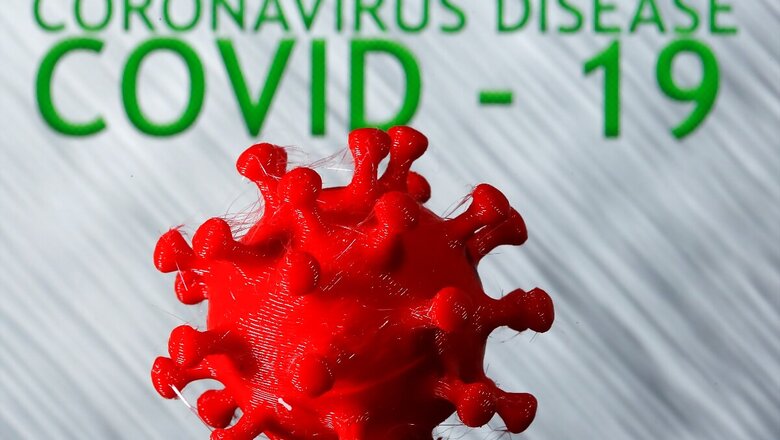
views
Earlier this month, a consortium of scientists led by the National Institute of Biomedical Genomics published a paper on the genome sequencing of SARS-CoV-2. The team sequenced over 1,000 viral genomes collected from oral and nasal samples across the country and found that the strain that was introduced by travellers from Europe was the most predominant in the country, with the A2a haplotype D614G gene mutation being the most widespread.
This haplotype or group of genes, usually inherited from the same origin, is reported to be associated with enhanced transmission efficiency, the government report had said.
Globally, and even in India, studies are still underway to conclusively find out the impact of these gene mutations on the infectiousness of the virus and on mortality. The D614G gene mutation has been under the spotlight because the mutation has been found to be located in the external spike protein of the virus, which it uses as a key to bind to human cells. Some have argued that this mutation around the spike protein could help the virus evade the immune response triggered by a vaccine.
However, scientists in India and globally, too, are of the view that this is not a major concern. Scientists though added that it is essential for the scientific community and governments to continuously track and sequence genomes to monitor the evolution of the virus.
“If the mutation results in a change in the spike protein, then the worry is that the vaccine might not work because most vaccines are based on generating a protective immune response against the spike protein. But so far, that has not been seen. Should we be worrying about it? It does not look like. We should though obviously continue to track the virus,” said Gagandeep Kang, Professor, Christian Medical College, Vellore.
“Since the spike is so essential for the function of the virus, it is very unlikely that the virus will be able to tolerate the change in the spike protein and still be able to infect people,” Professor Kang added.
A paper published on Thursday by authors working at Yale School of Public Health and Harvard T. H. Chan School of Public Health, Boston in Cell journal also delved into the likely impacts of the D164G mutation on the pandemic. Speaking on the location of the mutation, the paper said that since D164G is not in the receptor-binding domain of the spike protein, it is less likely that it would drastically alter the immunogenicity of RBD epitopes, which are crucial for antibody neutralization.
“The D614G mutation is therefore unlikely to have a major impact on the efficacy of vaccines currently in the pipeline, some of which exclusively target the RBD… There is no current evidence that it would interfere with therapeutic strategies such as monoclonal antibodies designed to disrupt spike binding with ACE2 or drugs that modulate downstream processes such as endosomal acidification,” the paper stated.
The authors, however, added that the mutation should be taken into consideration while developing vaccines or therapeutic drugs.
Explaining the causes behind the mutation of the virus and how it can affect the spread of infection, Dr Saumitra Das, Director, National Institute of Biomedical Genomics, the institute leading the genome sequencing project, said, “The virus tries to evolve so that it suits them better. It has to continually find one host after another otherwise they cannot exist. For that, they need to mutate in a way so that they can easily interact with the host. We create a selection pressure; we force the virus to mutate because of resistance. This resistance could be your immunity. When it faces to much resistance, it bypasses that by undergoing mutation.”
Three things are important to consider when it comes to mutation of the virus, Dr Das added. “Transmissibility, replication and pathogenicity are the three things the mutation can impact. Unless it is tested in a virus like particle or pseudovirus, we won’t be able to tell if the mutation affects immunogenicity.”
Dr Anurag Agrawal, Director, CSIR-Indian Institute of Genomics and Integrative Biology, opined that the mutations of the SARS-CoV-2 did not appear to be a matter of great concern from the vaccine and antibodies point of view. “In my mind, there is no great concern for a vaccine. There are mutations in the spike protein but we don’t at this point expect the effect on the structure to be so much that they would fail to bind antibodies. But I will advocate that we should keep on sequencing, we must remain vigilant since there are strains getting reported.”




















Comments
0 comment